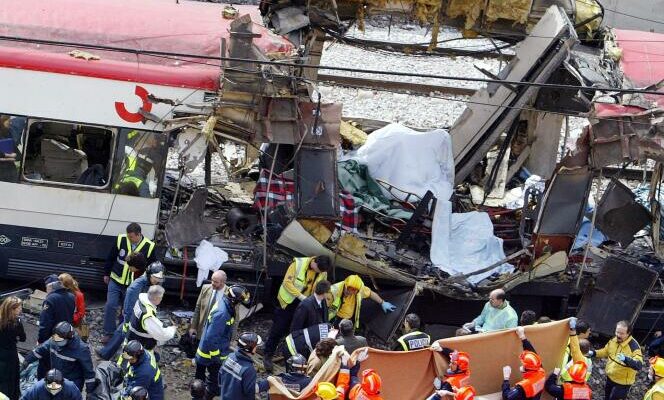LETTER FROM MADRID
Twenty years have passed since the attacks of March 11, 2004 in Madrid, when ten simultaneous explosions in four commuter trains, including two at Atocha station, killed 192 people and injured more than 1,800 others. Despite the passage of time, the first Al-Qaeda attack in Europe remains an open wound in Spain.
To get an idea, it is enough to count the number of essays and audiovisual productions released in March, with the idea, each in its own way, of finally establishing a consensual truth in the collective memory. , based on the facts, demonstrated, judged and corroborated in 2007 by the National Audience, the high court responsible for terrorism cases, then confirmed by the Supreme Court.
In a thorough essay, 11-M, Pudo Avoidance (“11-M could have been avoided “, Galaxia Gutenberg, 2024, untranslated), Fernando Reinares, one of the greatest Spanish experts in Islamist terrorism, looks back on the errors of the police and secret services which allowed the deadliest attacks ever committed on Spanish soil. On the La Sexta channel, a fascinating documentary in two episodes by Jordi Evole, The four days that changed us, concerns the pressure exerted at the time by the government of José Maria Aznar on the media, in order to maintain the idea that the attacks were the work of Basque terrorists from ETA. Added to this are a testimonial book from victims of conspiracy theories, a biography of the 192 victims and a podcast on “the wound” which is still “open”, produced by the information site The Confidential.
Wrong path
From March 12, 2004, to the collective trauma was added political manipulation, then the proliferation of conspiracy theories, encouraged by right-wing media and some of the conservative elected officials of the Popular Party (PP, right), then in power. .
Three days after the attacks, on March 14, Spaniards were called to the polls. For the government of José Maria Aznar, if the Basque terrorist group ETA were the author of the attacks, the PP, already favorite in the polls and known to be firmer with the separatists, would win. On the other hand, if the Islamist lead was confirmed, the equation became more complicated for the Prime Minister who had supported the invasion of Iraq by the United States in 2003, against part of his public opinion.
In the aftermath of the attacks, the government therefore clung to the hypothesis of ETA action, despite the signs of a jihadist attack quickly collected near the scene of the tragedy, including a cassette of Koranic verses found in a van containing explosives. As early as March 11, Arnaldo Otegi, then leader of Batasuna, the political showcase of the separatist and terrorist group ETA, gave a press conference believing that “the mode of action, the high number of victims and the way of doing it” seemed to rather raise “of the Arab resistance”.
You have 60.61% of this article left to read. The rest is reserved for subscribers.
